Can Dogs Eat Sunflower Seeds? Yes, But Watch Out For This..
Can dogs eat sunflower seeds? Yes, but only under certain conditions. Finn has more about how to add them to your dog’s diet safely.
It’s challenging to snack around your dog.
Between making sure you don’t accidentally drop any crumbs and trying to ignore those sweet puppy dog eyes begging you for a bite, it’s tough to stay strong. Luckily, dogs can eat many of the same snacks that we can (in moderation, of course).
But can dogs eat sunflower seeds? Yes — However, there are a few factors to consider before letting them chow down.
Yes, But Watch Out for This…
If you’re here because you accidentally dropped a sunflower seed on the floor and your dog immediately snatched it, we’ve got good news! Sunflower seeds are relatively healthy and make great occasional snacks for both humans and our precious pets. Dogs can absolutely eat sunflower seeds in moderation, and there is nothing poisonous or toxic about them.
While there are some factors to consider before deciding to make them a part of your dog’s diet, they are considered safe and don’t warrant a call to your emergency vet unless your dog seems to be having an allergic reaction to them.
For reference, signs of allergic reactions in dogs include swelling of the face and muzzle, itchy paws, trouble breathing, pale gums, extreme lethargy, and seizures. Luckily, anaphylactic reactions are extremely rare in dogs, but it is always smart to be on the offensive.
Are Sunflower Seeds Good for Dogs?
Don’t let their tiny size fool you, sunflower seeds are full of nutrition and offer plenty of health benefits!
They’re incredibly high in crucial vitamins and minerals like magnesium, vitamin B1, B3 (niacin), B6 (pyridoxine), B9 (folate), E, manganese, copper, phosphorus, potassium, zinc, and selenium. Each of these nutrients has an important job to do in the body.
For instance, vitamin E may help reduce swelling and support immunity. Manganese helps promote normal brain activity and nerve function, and selenium functions as an antioxidant.
Sunflower seeds are also full of linoleic acid, a type of unsaturated fat. Although fat gets a bad rep, dogs and humans need small quantities of healthy fats to keep the body running smoothly. Fat keeps the skin and hair (coat in dogs, of course) healthy and strong and insulates the body so that it can regulate its temperature more efficiently.
Specifically, veterinarians consider linoleic acid to be one of the essential fatty acids for dogs. Without it, dogs are likely to develop problems with dry skin and coat problems and even weakened immune systems or growth deficiencies.
What Should I Look Out for When Feeding My Dog Sunflower Seeds?
Though sunflower seeds are safe to feed your dog in moderation, there are a few hazards to watch out for before you let your dog snack away.
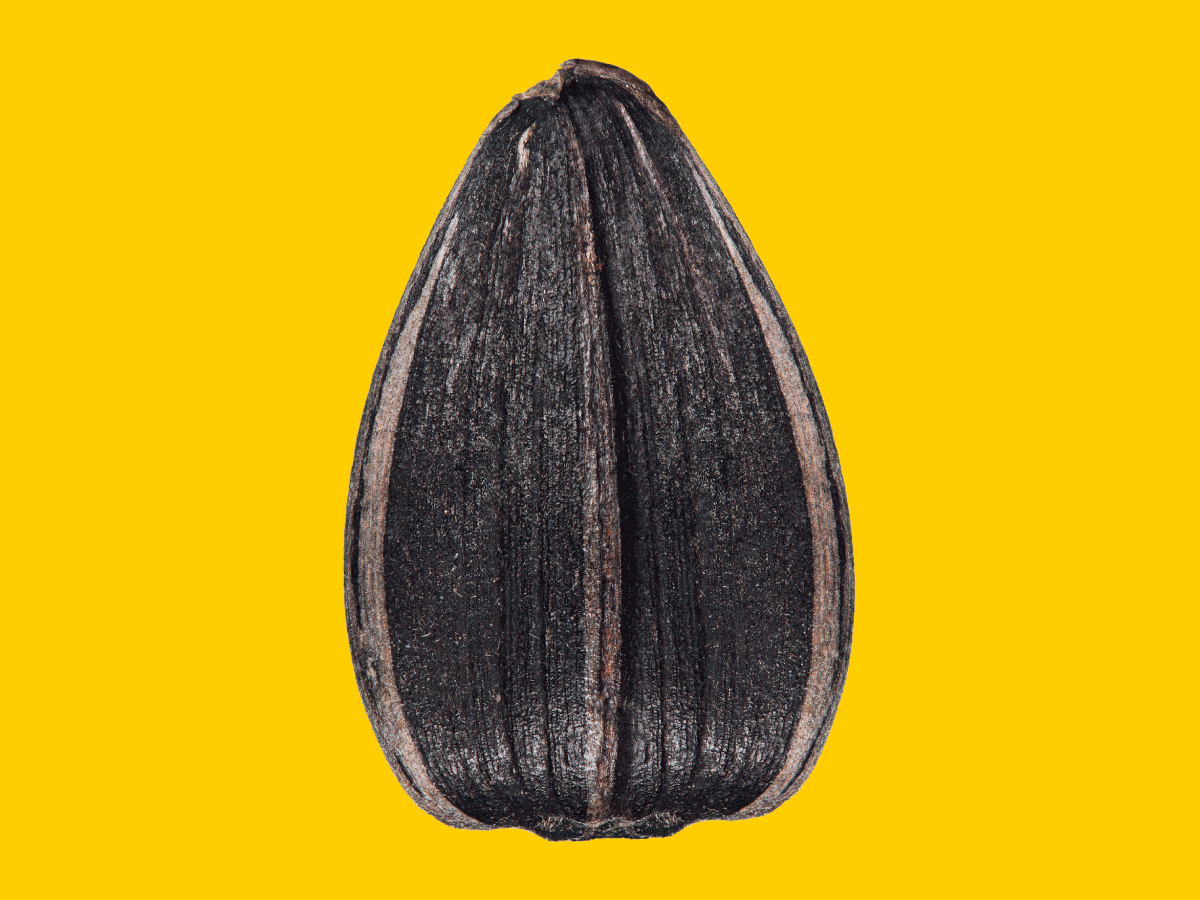
Always Peel the Seeds First
If you do decide to treat your dog with a sunflower seed every once in a while, you should peel them first. While there isn’t anything inherently toxic about the hard outer shell, there are a few ways that they can be dangerous for your dog.
For one, the sunflower seed shell is not meant to be ingested by anyone, and even birds will take the time to shell them before eating. The outer shells are tough and contain mainly cellulose, an insoluble fiber (meaning it doesn’t break down during digestion). Essentially, if your dog (or you, for that matter) eat the seed whole, it will pass through the body the same as it entered.
This may not sound like that big of a deal, but it can lead to some unpleasant digestive issues. If your dog eats too many of the shells, their gastrointestinal tract will likely go into overdrive and create one of two issues — diarrhea or constipation.
If your dog has ingested a large number of unshelled sunflower seeds, especially if you have a toy breed or other small dog, it can result in a complete obstruction (blockage) of the stomach or intestinal tract. This is an emergency and may need surgical intervention to fix.
Diarrhea, especially if it goes on too long, can become a serious issue. Diarrhea that lasts for more than two days, or is accompanied by vomiting, may turn into pancreatitis and needs to be evaluated by your veterinarian.
Sunflower seed shells can also pose a choking risk, especially for smaller dogs, and can damage your dog’s teeth. Shelled seeds are far less likely to become choking hazards.
Moderation is Essential for This Salty Snack
While these small seeds can offer a lot of nutritional value, they do contain potentially dangerous sodium levels.
Sunflower seeds are delicious, but they are snacks made for humans. That means they are made with the human palate in mind, and let’s face it — who doesn’t gravitate toward salty snacks?
While salt isn’t exactly great for us, it’s even worse for our dogs.
When eaten in excess, salt causes the same problems in dogs as it does for us — dehydration and high blood pressure. While most of the time these issues happen due to eating too much over a more extended period, your dog getting ahold of and chowing down on a whole bag of salted sunflower seeds can cause some acute health problems as well.
The biggest problem with high blood pressure in dogs, in addition to the related health issues, is that it can be a silent killer.
As close as we are with our dogs, we can’t read their minds, and they can’t tell us what’s wrong or how they feel. In particular, there are very few outward symptoms of high blood pressure until it has progressed to a dangerous level.
Save The Trail Mix for Yourself
A final factor to be aware of is that sunflower seeds frequently come as part of a trail mix. Trail mix is delicious and healthy for humans, but several components can pose a significant risk for dogs.
Dark chocolate and raisins are two common ingredients of trail mix that veterinarians are most concerned about.. Each poses a substantial threat to your dog’s health.
Dark chocolate contains a high amount of theobromine. The chemical is in most forms of chocolate, but it is the most concentrated in dark chocolate (and baker’s chocolate).
Theobromine is a lot like caffeine, and it can affect your dog the same way having too much coffee impacts you — a high heart rate, shakiness (muscle tremors), restlessness, and excessive urination. Unfortunately, too much of this chemical can also be fatal for your dog.
Raisins are just as dangerous. With dark chocolate, we have a better idea of how much a dog can eat without experiencing issues (hint: it’s not much). However, veterinary medicine has still not identified the toxic component of raisins (and grapes, from which they originate). There have even been cases of dogs eating a single grape and developing acute kidney damage and failure. Your dog should avoid them entirely.
How Else Can I Keep My Dog Healthy?
As much as our pups love treats, there are many more ways to show them our love.While doing what you can to keep your dog in shape may not be as immediately gratifying, it can help keep your dog around to love for much longer.
Chubby dogs happen, and certain breeds (like Dachshunds, Labradors, and Golden Retrievers) tend to be even more prone to obesity. The good news is that helping to counteract that excess weight gain, and keeping your dog slim and trim, doesn’t require that much additional work.
For starters, just like you’ve done by looking up whether sunflower seeds are safe for your dog, being aware of what your dog is eating is a step in the right direction!.
Generally, 90% of your dog’s daily calories should come from their food. Which means it’s important to choose the best, most supportive diet for your dog, depending on their current weight, age, size, and other health factors. If you’re unsure, check with your veterinarian for suggestions.
With the remaining 10% of calories, feel free to get creative! Knowing what foods are safe (and unsafe) to use as treats is half the battle, but you also need to know which are healthy. Look for snacks full of protein, like peanut butter or eggs, that are easy on your dog’s tummy without contributing to high cholesterol levels.
And finally, exercise. Some people love to work out, while other people not so much. Luckily, dogs don’t have the same concerns. Most dogs are ecstatic to even be shown their leash, and it’s not hard to get them up and moving. Unfortunately, a lot of the issue lies with us as their owners — when our schedules get busy, we get lazy, or the weather changes, we may be less inclined to take our furry friends on their much-needed strolls.
Why not start a new exercise program with your dog? The benefits of walking or jogging with your dog are numerous for both of you, and having your dog as motivation can help you keep up with the routine. Exercise can also help counteract anxiety and depression, as well!
In Summary
Can dogs eat sunflower seeds? Yes, giving your dog a seed or two every once in a while can be part of a healthy diet. However, you’ll need to to make sure you are feeding them unshelled sunflower seeds without any other seasonings or ingredients (like trail mix).
Remember, even the healthiest treat should not make up more than 10% of their daily caloric intake. Follow us at Finn for more tips on what is (and isn’t) ok to feed your pup.
Sources:
The Skinny on Fat: Part 2 – Essential fatty acids and inflammation | Tufts
Gastrointestinal Obstruction in Small Animals - Digestive System | Merck Veterinary Manual
Colitis in Small Animals - Digestive System | Merck Veterinary Manual

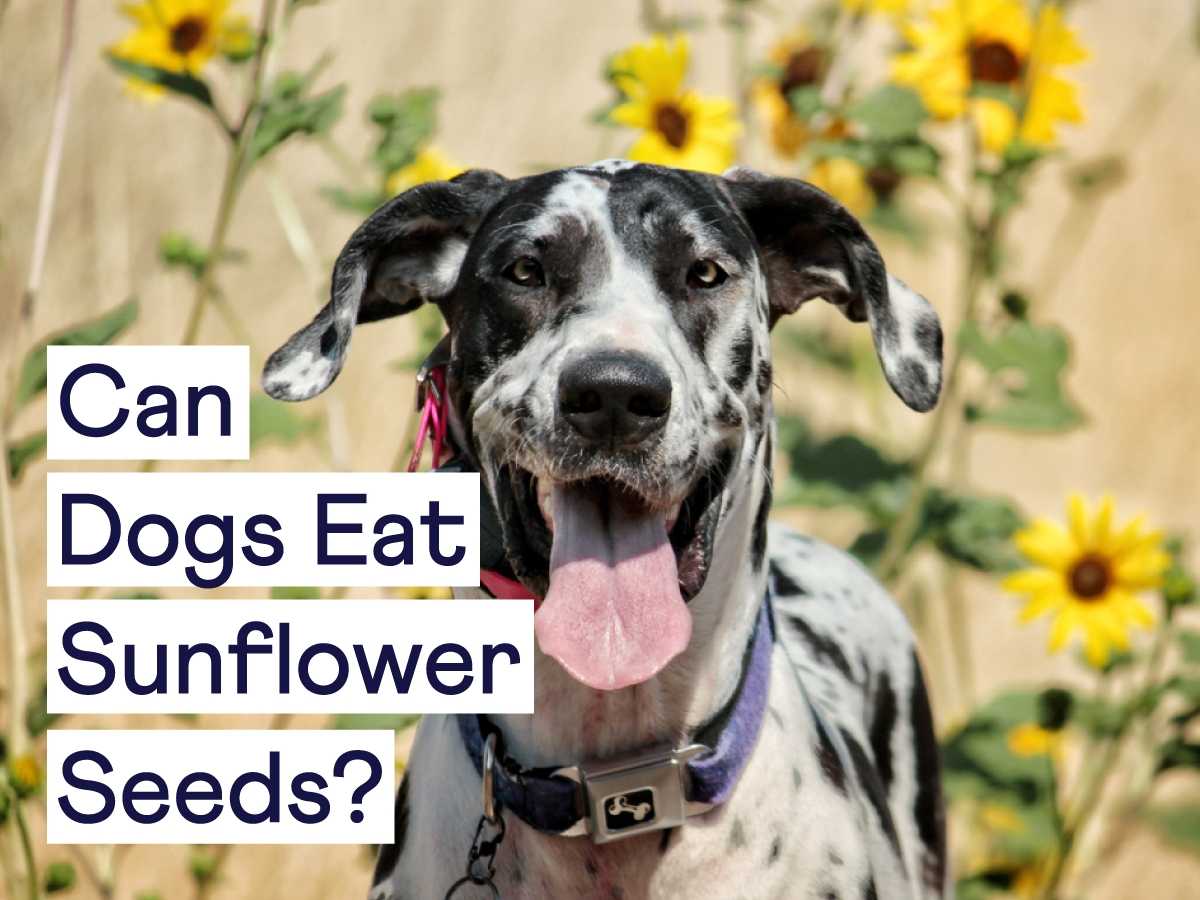
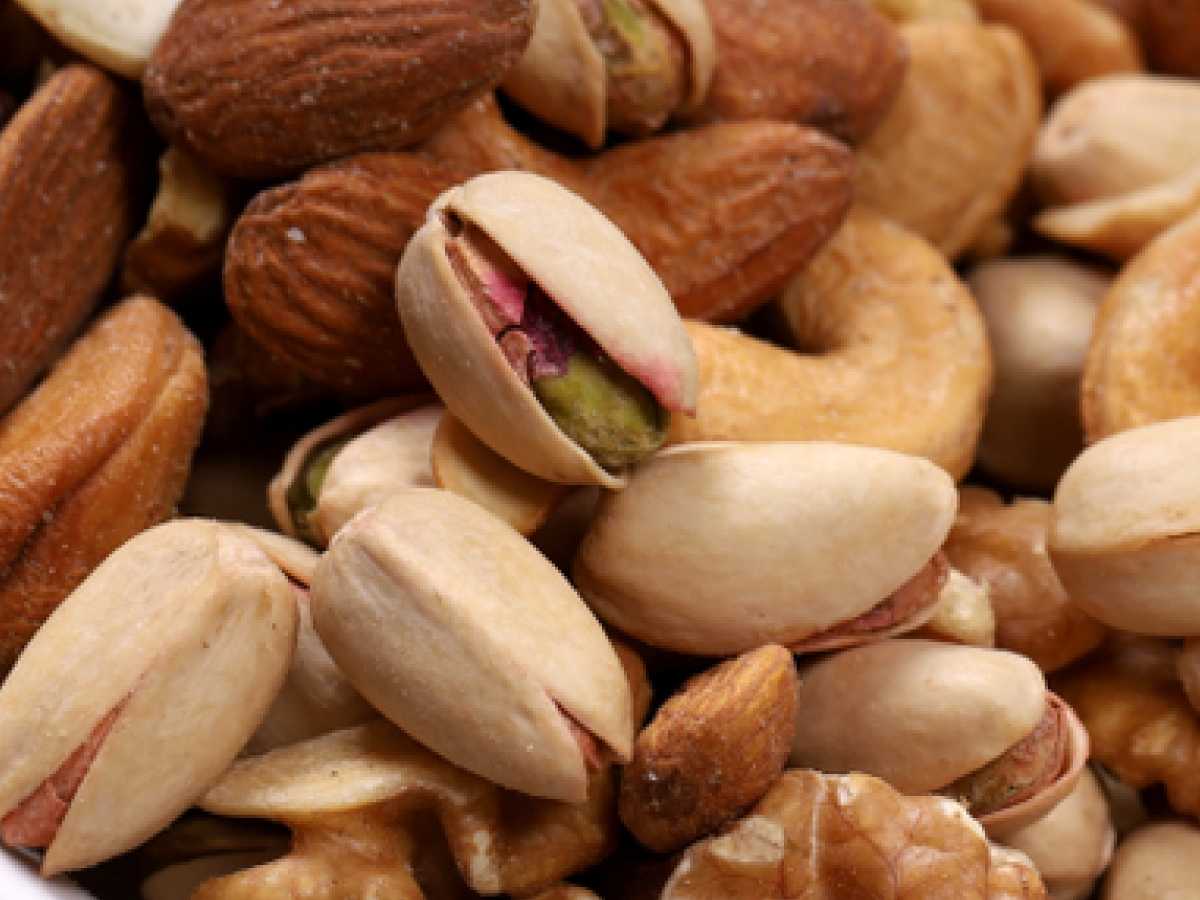
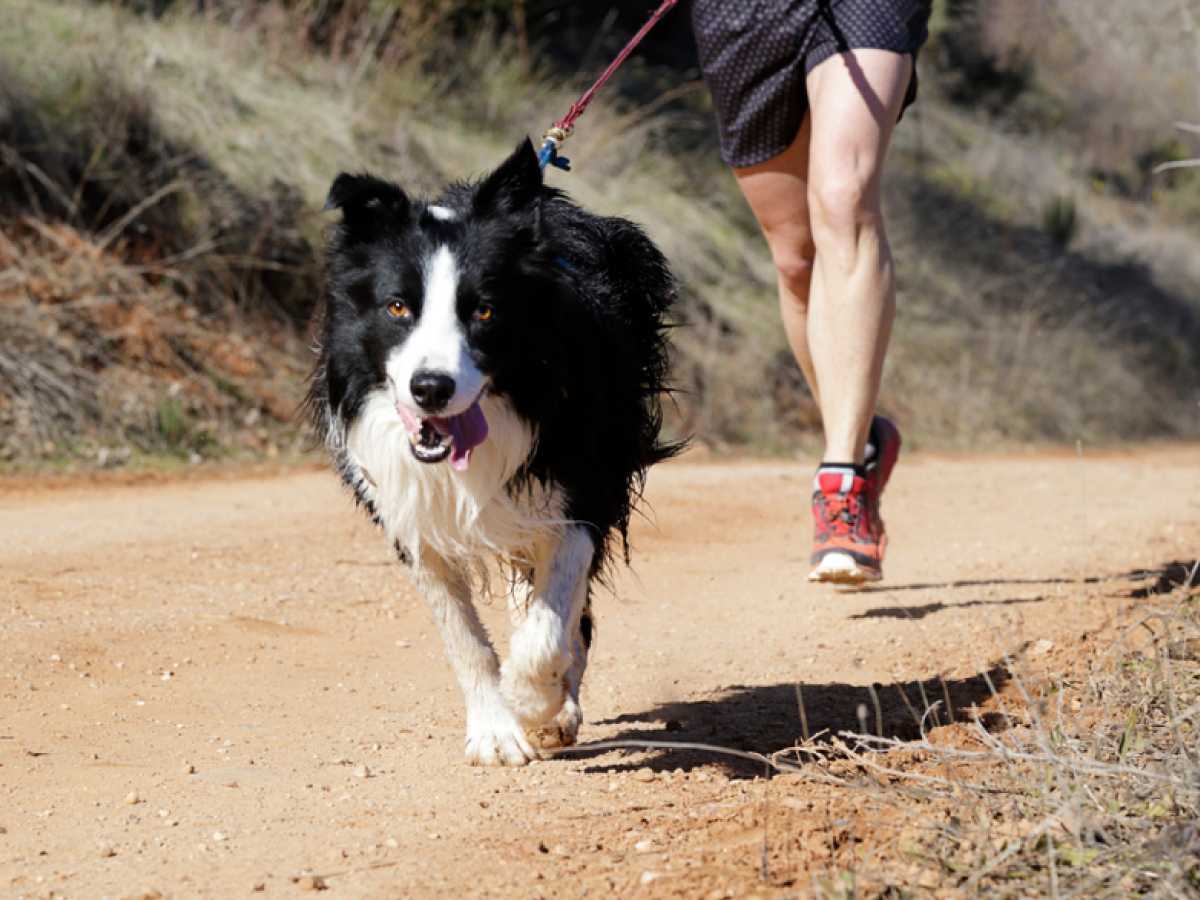


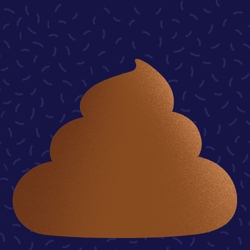
Comments: